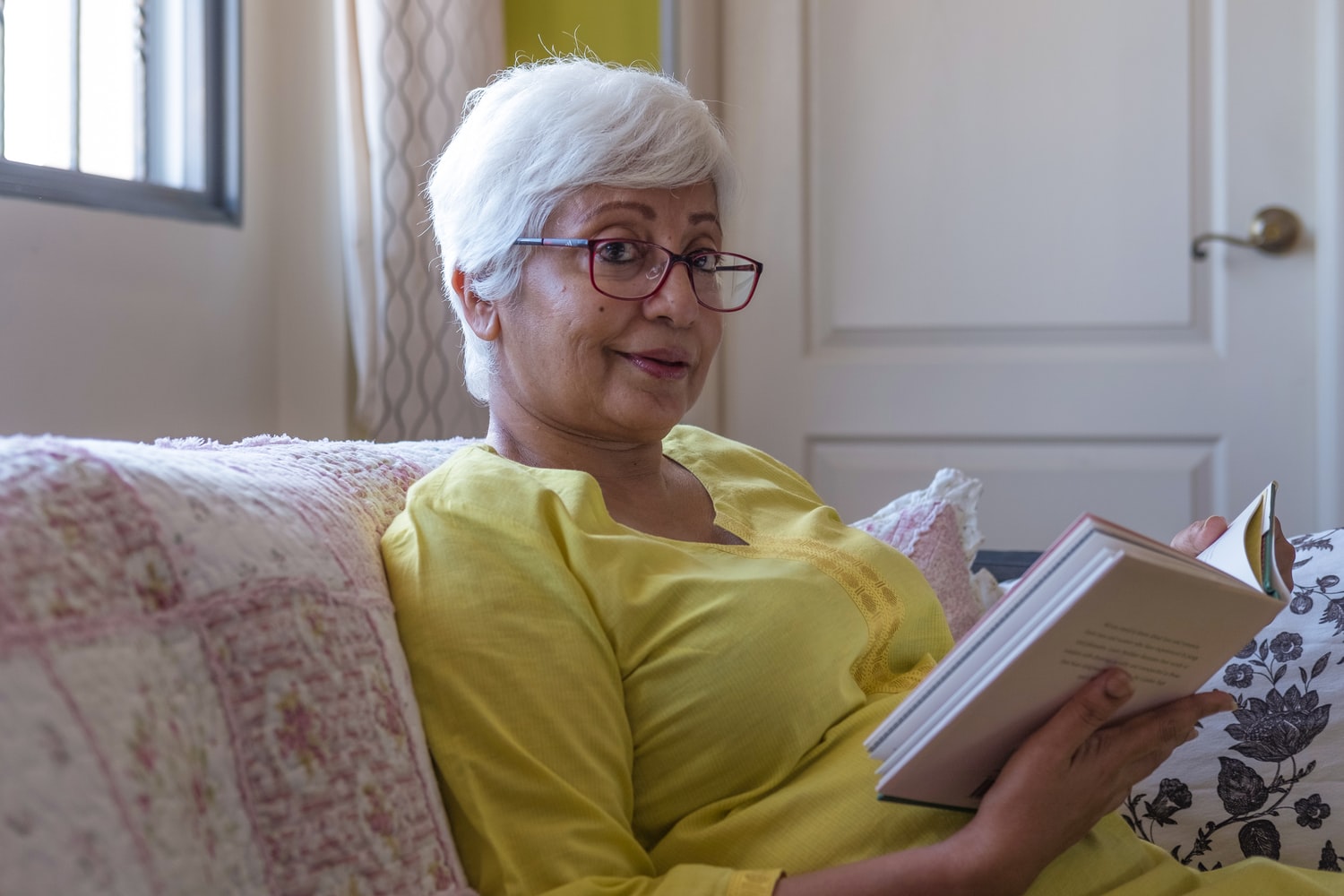Santa Barbara Community Partner Spotlight, Senior Real Estate Specialist, Raquel Quittner & Nancy Newquist-Nolan

Helping Seniors Navigate Real Estate with Heart and Expertise
Q: What inspired you to get into real estate, and what do you love most about your work?
Rachel: I’ve always been drawn to working with people, especially helping seniors navigate real estate transitions. Over the years, I’ve built strong relationships with trusted professionals in Santa Barbara, which allows me to ensure our clients are cared for at every step. We can help if they’re downsizing or moving into a senior living community. Nancy and I are also property managers and fully equipped to assist with their changing needs to rent their homes.
Nancy: My path began with encouragement from my husband, Keith Nolan, who’s an architect. He recognized my passion for sales and working with people, and believed real estate would be a perfect fit. That was over 20 years ago, and I’ve loved it ever since. Today, I’m fortunate to work alongside Rachel at Keller Williams, and it’s been a fantastic partnership. Our shared values and commitment to service make this work deeply fulfilling.
Q: How did you meet? What makes your team unique?
Nancy: One of my real estate brokers told me, “You need to meet Rachel, she’ll be a great help on this sale.” And wow, was she right. From our very first project, it was clear we had a great balance. Rachel’s is ready to work 24/7!
Rachel: “Working with Nancy never feels like work. We complement each other’s strengths and approach every transaction with the same dedication and care. Our clients benefit from that synergy, and that’s what truly makes the partnership special.”
Q: Do you have a personal connection to senior living or supporting families in transition?
Rachel: Absolutely. As a child, I performed regularly at senior communities with my dance group, and those experiences left a lasting impression. My great-grandmother also lived in a senior community for many years, and I visited her weekly. Those early experiences shaped my deep respect and love for seniors, and it’s always been a part of who I am.
Nancy: I previously owned a business in estate liquidation, and that’s where I saw the need for support during major life transitions. I realized I could help seniors not only with managing their belongings, but also with selling their homes. Today, Rachel and I offer a full-service experience for clients and their families, including a trusted network of vendors.
Q: Can you share a meaningful client experience?
Rachel: One that stands out is from last August. We worked with a couple who had just moved into Maravilla. They were facing health challenges and simply needed someone to take over the home sale process.
Nancy: We immediately stepped in and arranged for cleaning, yard work, smoke detectors, and a water heater replacement. We then coordinated with an estate sale company to manage, donate, or properly dispose of the remaining contents.
Rachel: The couple had unfortunately discarded important documents related to home improvements—critical for calculating capital gains tax. We began researching city permits and reached out to professionals who worked on the home decades earlier.
Nancy: We even contacted the original landscaper and architect, who kindly provided documentation and cost estimates. Thanks to those efforts, we were able to save the couple over $500,000 in capital gains. It was one of those moments where our experience and determination made a difference.
Q: Why are partnerships, like the one with The Alexander Properties, important to you?
Rachel: Supporting seniors is at the heart of what we do, and partnerships with organizations like The Alexander Properties allow us to expand our reach and deepen our impact. It’s a wonderful community.
Nancy: Collaboration is key. When we align with trusted partners, we’re able to provide more comprehensive support to our clients. It creates a win-win for everyone involved, most importantly, for the seniors and families we serve.
Q: Outside of work, what do you enjoy doing in your free time?
Rachel: My husband and I have three sons, and watching them grow into young men has been a gift. We’re excited to be welcoming a daughter-in-law soon. I also volunteer regularly, teaching dance at Grace Fisher’s Clubhouse for individuals of all abilities, organizing a monthly Down Syndrome Dance Party, and directing Grace’s Solstice Parade group. Community involvement is a big part of my life.
Nancy: My husband and I love spending time with our daughters and their husbands. We’re looking forward to the day we become grandparents, but until then, we focus on experiences, making memories through family trips. I enjoy swimming, and I am involved with shelter dog advocacy. They deserve a strong voice and to be in loving homes.
Final Thoughts:
Together, Rachel and Nancy bring compassion, expertise, and an unwavering commitment to service. Helping a family navigate a complex sale or partnering with local senior communities, they do it with heart and compassion.
July 2025 Newsletter
June 2025 Newsletter
May 2025 Newsletter
Pumpkin Shrimp Recipe

Alexander Gardens Community Services Director
“Camarão na moranga” is a typical dish of the Brazilian south coast, delicious and impressive for special occasions. The recipe was created in 1945 in Ubatuba, a town along the northern coast of state of São Paulo.
Pumpkin is a Central American vegetable very common in Brazil. It is versatile and is used to make a infinite number of sweet and savory recipes.
Ingredients
- 5lbs flat pumpkin (sweet pumpkin)
- For the prawns in cream sauce:
- 2 lbs medium prawns
- 2 tablespoons olive oil
- 2 tablespoons butter
- 1 garlic clove chopped
- 1 small onion chopped
- 2 cups tomato sauce
- salt and ground pepper or chilli pepper
- 1 bay leaf
- 1 tablespoon all-purpose flour
- 1 cup whipping (heavy) cream
- 1 cup coconut milk
- 2 cups cheese cream
- Garnish:
- large sized prawns
- salt
- 2 tablespoons olive oil
- 1 garlic clove
- 1 shot cognac
Preparation method
Preparation of the pumpkin:
1. Wash the pumpkin and cut the “lid” to make the pumpkin into a “bowl”.
2. Scrape the inside with a spoon to remove seeds.
3. Bake the pumpkin at 250° for about 1 hour, until the pulp is soft.
Preparation of the prawns in cream sauce:
1. Sauté the onion and the garlic finely chopped in oil and butter.
2. Add the tomato sauce, the bay leaf, salt, black pepper and cook for 2 minutes.
3. Add the peeled prawns and cook a few minutes.
4. Dissolve the flour in a little of coconut milk or whipping (heavy) cream.
5. Add the whipping (heavy) cream, the coconut milk and flour dissolved to the mixture, a little at a time, and stir frequently until the cream is thickened.
6. Season with salt and black pepper; remove and discard the bay leaf.
To assemble the dish:
1. Fill the baked pumpkin with the prawns in cream sauce and the cheese cubes.
2. Bake the filled pumpkin at 350° until the cheese has melted. It takes about 15 minutes.
3. Decorate the filled pumpkin with prawns sautéed with olive oil and garlic and flambéed with cognac.
4. Pumpkin is not only a bowl but is part of the dish so, serve the pulp of the pumpkin with the prawns in cream sauce. Serve with white rice.
Yield: 4 – 6 servings.
5 Reasons to Join a Book Club When Living in Assisted Living

The Book Club at Alexander Gardens Assisted Living is one of the many life-enriching activities offered to our residents. We understand leading a full and meaningful life is important at any age but when seniors move to an assisted living community a good life enrichment program will improve the quality of their lives.
Staying active in an Assisted Living community is vital in reducing depression and isolation, and book clubs are a great way of staying connected and engaged. Research shows that reading helps in retaining long term memory, focus, and concentration.
In her article, Being a Lifelong Bookworm May Keep You Sharp in Old Age, Marina Koren talks about giving our brains a workout. Reading and retaining words require more mental energy than, watching TV or playing Solitary on an IPad. According to Koren, “In particular, people who participated in mentally stimulating activities over their lifetimes, both in young, middle and old age, had a slower rate of decline in memory and other mental capacities than those who did not.”
No matter your age it’s important to read and these are some of the reasons seniors should join a book club.
1. Socialization, in addition to giving your brain a workout, a book club can be social. It brings together residents in a group environment to share their ideas about the book they are reading. They may have so much fun and meet someone new.
2. Expanding resident’ horizons beyond the walls in assisted living. Reading brings the outside world to the resident’s world without leaving the building. Books offer a glimpse into the lives of other people, different cultures, and current events.
3. Practicing effective communication skills in a book club helps residents clarify what they have read in the book. Residents will question each other about ideas and opinions. In addition, they will provide feedback to each other when discussing characters and plot.
4. Setting goals for reading is a good thing for residents.
Sometimes residents get over whelmed if they feel pressure to join an activity or group especially if they were not social when living in their home. But reading is an individual activity and can be done at one’s own pace. Whether the resident chooses to join the conversation or sit and listen it’s up to them, but both are better than staying in their room.
5. Getting out of their comfort zone. Sometimes residents get comfortable and won’t try new things. When they commit to joining a book club they may have to read books that they ordinarily would not read. And they may have to discuss topics they are not exposed to on a regular basis.
Improving long-term memory in seniors through the book club is just as important as exercising. The mental challenge of reading and retaining information helps delay the onset of dementia. A science advisor Dr. Zaven Khachaturian, to the Alzheimer’s Association published an article in USA TODAY, states, “ brain-challenging activities build a reserve of neuronal connections, making it take longer for the Alzheimer’s process to destroy enough neurons for symptoms to emerge.” As the residents read and discuss the material in the book they are retaining the information and helping the brain stay young. Reading no matter what your age is good for your brain. It helps improve concentration, focus and thinking skills. Coupled with a book club makes reading a positive and rewarding experience for seniors living in assisted living.
If you are looking for a book for your book club try reading, Happy for No Reason, by New York bestselling author, Marci Shimoff. Why not start your year off right and learn how to reset your happiness button. Take the Happiness Quiz from Happy for No Reason Questionnaire.
According to Aristotle, “Happiness is the meaning and the purpose of life, the whole aim, and end of human existence.” Make this the year of the book and join the club.
5 Cost Free Gifts How to Give the Gift of Love

How to Give the Gift of Love
5 Cost Free Gifts
By Mary Brook
If you are an average American consumer then you are expected to spend $942.00 on holiday gifts this season. 37% of Americans say they will spend $1,000 or more and 16% say they will spend less this year than last year. These are all record amounts of spending for this average holiday season. According to a Gallup Poll initial, it should be a good spending season for retailers.
But if you are senior or live on a fixed income these numbers can be overwhelming. How do you find a gift that won’t break the bank? What is the best gift you can give this year that doesn’t cost a dime? I believe it’s the gift of love. Love comes in all shapes and sizes and it may or may not be wrapped up and put under the Christmas tree. Love has different meanings to different people. But the true meaning of the holidays is sometimes forgotten. Take a moment to remember it’s not about buying presents but about giving.
What is the best gift you can give this year that doesn’t cost a dime? The gift of love. Love comes in all shapes and sizes and it may or may not be wrapped. Love has different meanings to different people. The Oxford dictionary defines the word gift, “as a thing given willingly to someone without payment, a present.
“The true meaning of the holidays is not about buying presents
but about giving.”
I hear again and again from seniors the number one gift they want for Christmas is to spend time with their family. Sharing your time, energy and unconditional love with no strings attached is celebrating the true meaning of the season. Visiting family because you want to not because you have to create good feels for everyone. Anyone can go to the store and buy a present, but if you take the time to visit with family it will mean so much more. The time you spend together will be a memory for that last throughout the year.
5 Cost Free Presents!
The Gift of Time: One of the hardest things to do is slow down and take the time to connect. Put down the cell phone, and listen to what the other person is saying is a gift of love.
The Gift of Nature: Take a walk together when you are outside with your loved ones it is a refreshing change of pace. Getting out of the house and into nature is good for everyone. The loving feeling of being together in nature will create a memory that will last.
The Gift of Play: Play a game together and have some fun. One of my favoritesScattergories, a creative-thinking based game that can be played in teams. There is a lot of laughter and a lot of conversation when you play together.
The Gift of a Handwritten Letter: Instead of buying a card that says I love you. Write a letter to your loved ones. Put into words your feelings and let that person know why you care about them. A letter is something they can keep and look at throughout the year.
The Gift of Kindness: Being kind to others costs you nothing but a smile or a few kind words. The effect of kindness makes you feel better and will let the other person know you care enough to connect. Being kind to strangers standing in line at the grocery can lift the spirits of everyone in line. When you ask someone how they are doing it may be their only social connection that day. For some seniors who live alone, it means a lot. Especially when they don’t expect it.
It’s challenging not to get caught up in the spending spree that has become part of the holiday season. But what will your family remember two days after Christmas? The store-bought presents or the time you spent engaging in meaningful activities and connecting. To give the gift of love at the holiday season is the best gift of all.

The Benefits of Having a Roommate in Assisted Living
The Benefits of Having a Roommate in Assisted Living
Roommates in assisted living can have several advantages that you should consider when choosing a room. Having to decide to share living space with another person, often someone you have never met can be difficult for both the resident and the family. Here are some valuable benefits to consider:
- Saving Money – The most obvious of the benefits of sharing a room is sharing the cost of accommodations. The savings are approximately 30-40% on average.
- Easing Transition– Having a roommate promotes socialization. Having a roommate can provide the first person you get to know Your roommate can give you advice on how to better navigate within the community’s unique culture.
- Decreased Loneliness – Too much seclusion is not a good thing. It is easy for loneliness to set in. Many seniors will stay in their rooms most of the day sleeping or watching television. This lack of socialization can sometimes contribute to loneliness and worse, depression. A roommate can dramatically diminish the feeling of isolation and/or loneliness.
- Additional Monitoring – You should consider the benefit of the additional monitoring that a roommate provides. Because they see each other every day, roommates can be the first to notice changes that occur in the health or ability of a senior. There is great value in noticing a pattern early that might otherwise go undetected for a longer period.
- Longer Life Expectancy – A variety of social studies confirm that social relationships augment one’s quality of life and extend our life expectancy. Having a source of consistent companionship in the form of a roommate can increase mental and emotional stimulation and therefore contribute to overall health and longevity.
Roommates aren’t just for starving students or young people but can be beneficial for people of all ages.
When choosing a room in assisted living there are many options to consider, and a shared room or private room is worth considering.
Joseph Newlan, LVN, Associate Executive Director, Alexander Gardens Assisted Living
Exerts from Starlight Homes Assisted Living 2019
Comfort Foods and Cook Books

Comfort Foods and CookBooks
A Winning Combination in Assisted Living
By, Mary L Brook, Associate Executive Director

